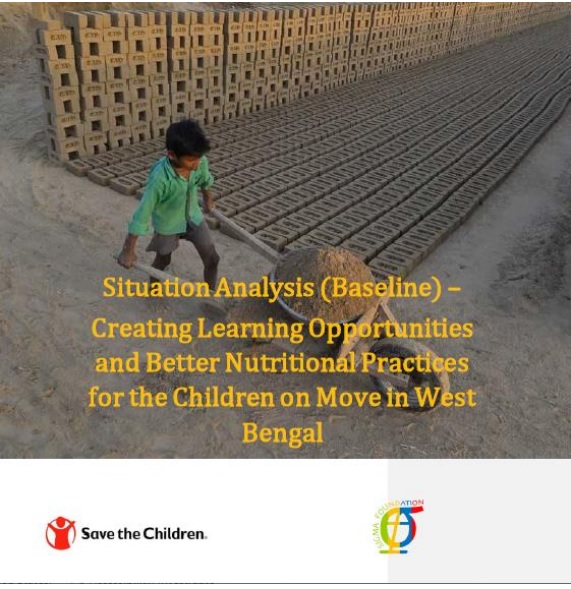Situation Analysis (Baseline Study) for Project “Creating Learning Opportunities and Better Nutritional Practices for the Children on Move in West Bengal
Contributed By: Dr. M.N. Roy, Dr. Sanghamitra Kanjilal Bhaduri, Mr. Sangram Mukherjee, Ms. Mayuri Sen, Mr. Debojyoti Majumder, Ms. Riyanka GhoshSave the Children India planned for a project viz. “Creating Learning Opportunities and Better Nutritional Practices for the Children on Move in West Bengal” in Malda and North 24 Parganas district (where brick kiln industry thrives and child labour is considerably high) to support the children of the migrant families in brick kilns in accessing nutritional supplementary services, education and other essential services. To assess the present status of these migrant children in the brick kilns related to their education, nutrition care and WASH in post-COVID situation and to provide a reference to the above-mentioned project, a baseline study has been conducted by SIGMA Foundation. The study has followed a mixed method approach and the research tools have been designed to collect both quantitative information using structured questionnaires from 600 respondents and qualitative information through Key Informant Interviews (KII) or Focus Groups Discussions (FGD) using appropriate semi-structured discussion points from 45 samples. The primary survey was conducted across brick-kilns in one block of North 24 Parganas and 2 blocks of Malda. The primary target group were mothers of child aged 0 to below 18 years old and adolescents (aged 11+ to below 18 years). The Baseline study found that around two-third of the mothers were illiterate. The households stayed at labour hutment, provided by brick-kiln owners within the premises of the brick kilns. The walls of these hutment were made of brick and the roofs were made of plastic sheets in most of the cases. The living arrangement was unhygienic. In Malda, majority of the workers were inter-state migrants while in North 24 parganas, majority were intra-state migrants. The major reasons for migration were higher income prospect and lack of earning opportunities at the native village. The receiving counselling services from the AWCs was very limited and the availability of child friendly infrastructures was also found to very limited in both the districts. It was found that although some of the children of inter-state migrant families had enrolled, 2 they did not have access to such institutions nearly half of the year since they were at staying at brick kilns with their parents. The activities of schools during the period of pandemic were very limited. In North 24 Parganas, none of the adolescents mentioned of conducting online classes by their schools. According to more than half of the adolescents, the learning during closure of schools was less than that during normal time. The non-institutional delivery was found in both of the study districts. Save the Children has arranged for dissemination of the study findings among the government officials, academician and the NGOs working on issues on child right.

